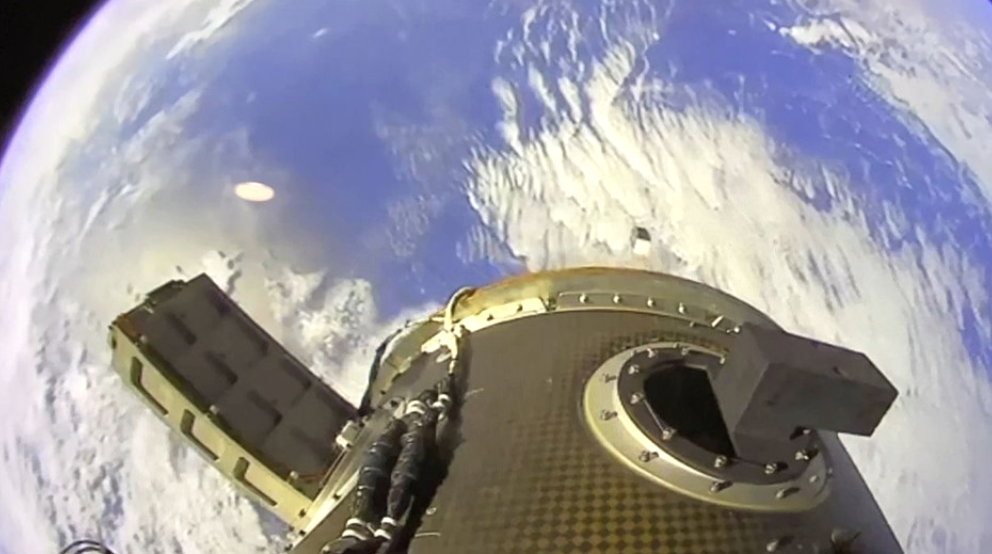
Firefly Aerospace, a provider of launch, spacecraft, and in-space services, announced that its Alpha FLTA002 mission successfully reached orbit and deployed customer payloads, lifting off on October 1 at 12:01am PST from Vandenberg Space Force Base in California.
With the success of this mission, Firefly is now the first company to launch and reach orbit from U.S. soil in only its second attempt. Additionally, Firefly also is the first U.S. commercial space company with a rocket ready to take customers to space in the highly desired 1300kg payload lift class. Firefly sends special thanks to SLD-30 for their continued support and partnership and the customers on FLTA002 for their dedication and unwavering confidence in Firefly’s technology.
FLTA002 deployed a total of three payloads, including demonstration satellites from NASA TechEdSat-15 in conjunction with San Jose State University (SJSU), Teachers in Space, and Libre Space Foundation. These payloads will perform several in-space experiments, including an “exo-brake” to help in the deorbiting of satellites and test the world’s first fully-free and open-source telecommunications constellation.
“With the success of this flight, Firefly has announced to the world there is a new orbital launch vehicle, available today, with a capacity that is pivotal to our commercial and government customers,” said Bill Weber, Firefly CEO. “Proving our flight and deployment capabilities on only our second attempt is a testament to the maturity of our technology and the expertise of our team. This is an exciting day at Firefly, and we have many, many more ahead. I could not be more excited for the Firefly team.”
Alpha is an all-composite rocket that uses patented tap-off engine cycle technology, which reduces cost and improves efficiency while maintaining the strength and reliability of the rocket. During the mission, Alpha successfully completed all major technical milestones, including a two-burn maneuver, relighting the second stage during its first orbital flight.
“I am so proud of everyone in the company, both past and present, who have shared my dream of starting a launch company that would further revolutionize the space economy,” said Tom Markusic, Firefly Founder and Chief Technology Advisor. “The Firefly team set out to develop the best small launch vehicle in the world. Mission accomplished!”
Building on this recent success, Firefly is completing the Acceptance Testing Protocol (ATP) for its Alpha 3 vehicle in preparation for its upcoming NASA VCLS Demo 2-FB ELaNa 43 launch. In addition, Firefly continues the production of multiple rockets at its Texas manufacturing facilities using all the lessons learned from existing flights and testing. Firefly is scheduled for six Alpha launches to take customer payloads to space in 2023, and 12 more in 2024.
Alpha FLTA002 Mission Details
The flight began with a nominal countdown and lift-off at 12:01 AM PDT and progressed flawlessly through each stage of flight, then inserting into an elliptical transfer orbit, coasting to apogee, and performing a circularization burn with confirmation of final payload deployment at approximately T+1 hour, which is one of the most technically challenging aspects of the mission.
FLTA002 deployed a total of three payloads, including demonstration satellites from NASA TechEdSat-15 in conjunction with San Jose State University (SJSU), Teachers in Space, and Libre Space Foundation. These payloads will perform several in-space experiments, including an “exo-brake” to help in the deorbiting of satellites and test the world’s first fully-free and open-source telecommunications constellation.
Firefly is a portfolio company of AE Industrial Partners, LP (“AEI”), a private equity firm specializing in aerospace, defense & government services, space, power & utility services, and specialty industrial markets.